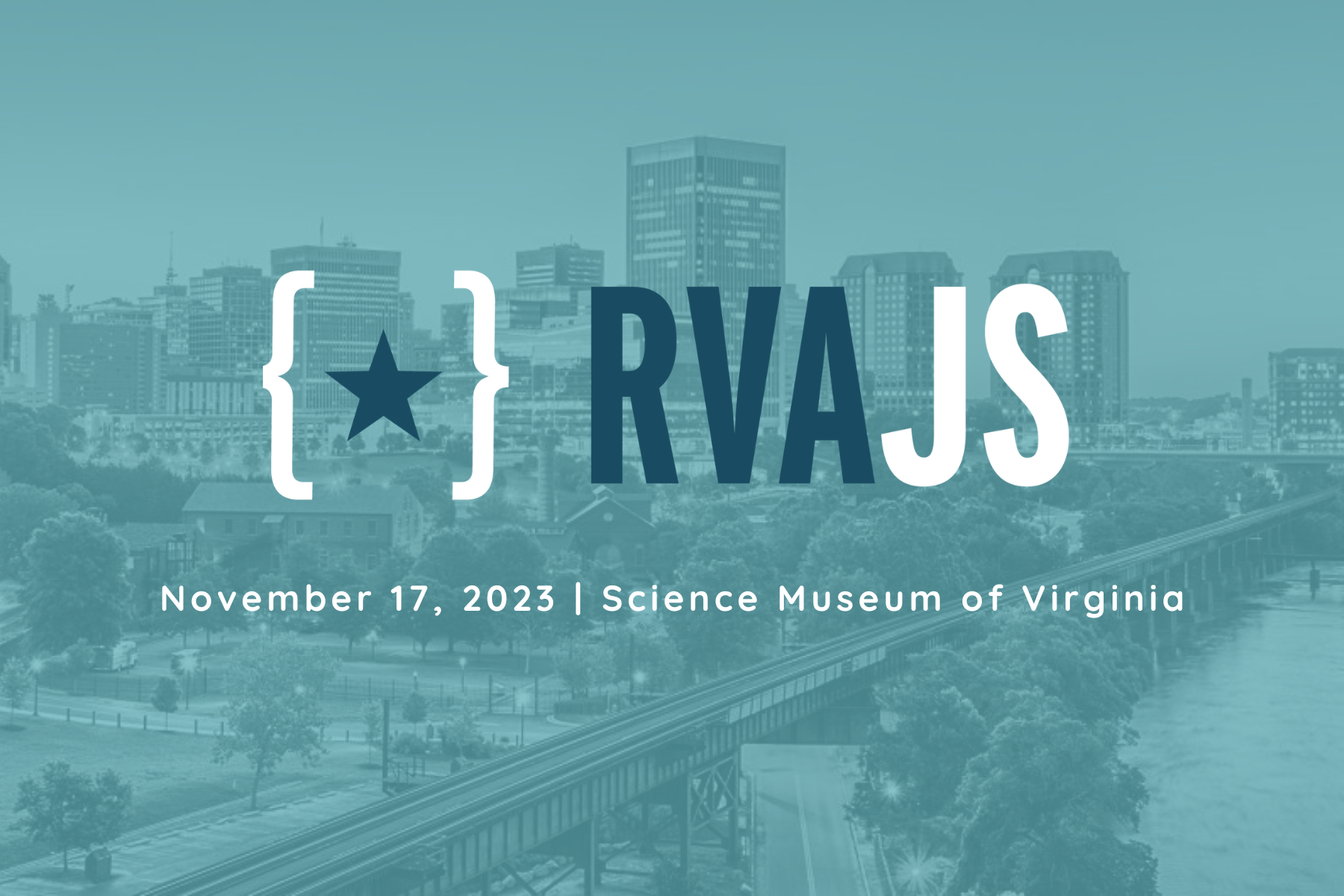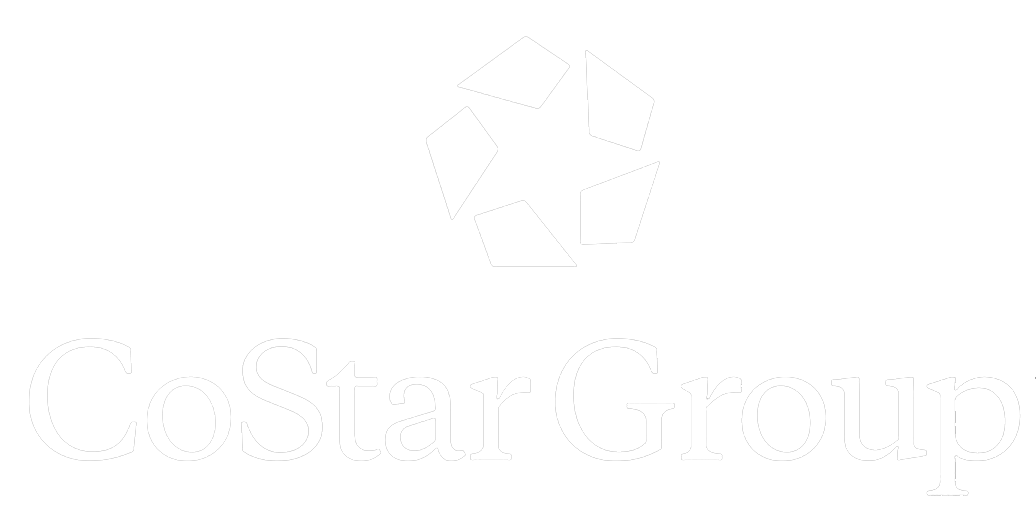
About the Event
Get ready to boost your skills as we chat about everything JavaScript from TypeScript to Node.js to React.
RVAJS is a one-day conference dedicated to all things JavaScript, so join rvatech/ for the fifth annual RVA JavaScript Conference hosted at the Science Museum of Virginia. Registration is now open and each year’s conference has been a great event with a sell-out crowd and we expect this year to be even better!
Be in the first 300 to sign up for RVAjs!
Early Bird pricing of $99 will be available to the first 150 registrants.- Standard ticket pricing of $149 will be available to the next 150.
- Tickets sold after the first 300 registrants will be priced at $199.
Venue
The Science Museum of Virginia – Dewey Gottwald Center
2500 W Broad St, Richmond, VA 23220
Parking:
Dewey Gottwald Center parking is located behind the museum. The parking lot entrance is located off of West Leigh Street beside the Commanders (Redskins) training camp – view detailed instructions.
GPS Address: 2301 W Leigh St Richmond, Va 23220
Registration
What to Expect
The RVAjs conference is a must-attend event for JavaScript and web developers, UX/UI designers, DevOps and security professionals, AI enthusiasts, frontend developers, micro frontend and GraphQL enthusiasts, IoT developers, and anyone interested in software development. The conference covers a wide range of topics, from JavaScript in the age of AI to UX design, security, and IoT integration, making it an excellent opportunity to stay updated on industry trends and network with fellow technology enthusiasts.
Register Today
Conference Schedule


More Info
Location: Main Stage
This talk is a candid exploration of the intersection between AI and JavaScript engineering. Let’s confront our sobering new reality head on with clear eyes and an open mind. While we face the daunting reality that AI is replacing certain jobs this talk is not a doomsday prophecy. Instead, we’ll discuss strategies that can transform AI from a threat into a powerful ally. Let’s discover what it takes to not only survive, but thrive.

More Info
Location: RF&P Forum
Devs rely on Hot Module Replacement, but few know how it works. Not to mention the confusion between watch mode, live reloading, and HMR. In this talk, we’ll reinvent HMR from first principles, giving you the confidence to work with HMR where ever you find it (webpack, vite, etc..).

More Info
Location: Gottwald B
Are your JavaScript applications technically sound, but lacking that polish and special spark that makes users fall in love with them? If you want to create web applications that also leave a lasting impression on your users, it’s time to embrace User Experience (UX) design.
In this session, we’ll cover the secrets of creating web applications that go beyond being merely functional to becoming fun, intuitive, and memorable experiences for your users. The talk will cover the essential UX principles that every JavaScript developer should know, with practical examples of how to implement them effortlessly into your projects.
Whether you’re a seasoned JavaScript developer or just starting your journey, this talk will leave you with valuable insights to create applications that resonate with your users on a deeper level.

More Info
Location: Main Stage
Unlock the exciting world of game development with JavaScript skills you already know! Learn the many ways that game dev mirrors web dev, and take away easy entry points for you to try it yourself. You will expand your horizons, and gain practical insights to level up your skills across the board!

More Info
Location: RF&P Forum
Join me for an introduction to Melange, a game-changer in type-safe web development and the spiritual successor to BuckleScript/ReasonML. We will examine the current state of TypeScript, its strengths and weaknesses, and why it creates a compelling story for a solution like Melange.
Diving deeper, we’ll discuss Melange’s core offerings: OCaml’s unparalleled type system and its integration within the OCaml ecosystem and toolchain. We will also learn about Melange’s ability to compose and bind to existing packages and tooling in the JS/TS ecosystem with minimal friction.
Finally, we’ll explore the developer experience of Melange, touching upon its editor integrations, the friendly and growing community, available libraries, and state-of-the-art tooling.
Whether you’re a seasoned TypeScript developer or just getting started, this talk will offer a fresh and interesting perspective on type-safe web development, positioning Melange as the next frontier.

More Info
Location: Gottwald B
Today’s JS apps have hundreds of dependencies. It’s extremely important to understand the risks of your software supply chain – in a manner that’s highly automated, stays out of the way and gives you context about your changes in each pull request.
This talk will begin with an overview of supply chain risks and the standards/tech in the space. Then we’ll dive into how to give engineers context right in a pull request/CICD pipeline about any security issues with their dependency changes. Of course, this is an ongoing process once your app is deployed, so we’ll discuss strategies to make the process as painless as possible.
As a bonus, it’s very likely that your full dependency tree is beyond npm, to everything else in your containers and the hosts that you’re running on. This interactions can be complex and hard to get a handle on. We’ll end by discussing what a holistic supply chain strategy looks like.

More Info
Location: Main Stage
SolidJS is the fastest framework available with a programming API similar to React. JSX, Typescript, Reactive, Server side rendering – Solid has it all, including a Universal Renderer to allow you to create your own framework. Get an intro to Solid and how I built my own webgl renderer with Solid.

More Info
Location: RF&P Forum
Web components are a set of technologies that encapsulate custom code within native HTML tags and DOM Nodes, no virtual DOM, bundler or build pipeline needed. We’ll review key concepts and features of web components, slots, template composition, and the role of StencilJS.
We’ll explore how we can use UI web component libraries and utility classes like TailwindCSS to help solve challenges in multi-tenant systems, WordPress/Shopify templates, and more.

More Info
Location: Gottwald B
As a car owner, we *know* if we lose our access token (the key) anyone can drive your beloved Eleanor away. In the online world you can lose your access token without even knowing it’s gone. Let’s talk about ways we can help prove rightful possession of an access token when accessing sensitive data like bank accounts and NOC lists.


More Info
Location: Main Stage
Have you heard of Web Bluetooth? It ties local devices to the Web through a browser using JavaScript. For example, this allows you to share your fitness tracker data in the cloud for analysis or sharing with others. The ease with which Web Bluetooth allows this flexibility will impact healthcare, home, and industry.
This presentation assumes no Bluetooth knowledge and will introduce the relevant concepts to understand Web Bluetooth and how to use the API in the JavaScript ecosystem. A demonstration will be given to show how a wearable device can communicate with the cloud using JavaScript and Web Bluetooth. Additionally, the development and testing hurdles which center around the requirement for secure connections such as HTTPS will be explained. Finally, the broader scope of this technology’s impact on healthcare, home, and industry will be discussed along with the security and privacy questions.

More Info
Location: RF&P Forum
SemVer outlines how to communicate when breaking changes exist, but it doesn’t provide guidance on how to introduce breaking changes to application developers. Most of the time you get release notes outlining the breaking changes. If you’re lucky, you might get instructions on how to change your code. Beyond that there’s very little standardization around how to best prepare your users for breaking changes across major releases.
We’ve seen a few approaches work with varying degrees of success, but they often involve painful long-lived feature branches or feature freezes to adopt the new version all at once.
For Remix, we wanted to make this process as smooth as possible, providing the ability to adopt breaking changes one-by-one without the need for long-lived feature branches. Let’s talk about “Future Flags” and our plan to make Remix major upgrades boring for you and your team.

More Info
Location: Gottwald B
In today’s fast-paced technological landscape, complexity seems to be the norm. However, there is a growing need to question this status quo and reevaluate our approach to software development. Simple software offers numerous advantages, from increased productivity and maintainability to improved user experience and reduced costs. In this talk, we will dive into the benefits of simplicity and how it can pave the way to success for software projects.
Key Takeaways:
Understanding the value of simplicity: We will explore why simplicity is essential and the benefits it brings to developers, businesses, and end-users. By examining case studies, we will demonstrate how simple software solutions have outperformed their complex counterparts in various domains.
Principles for simplicity-driven development: Discover a set of principles and best practices that can guide developers in writing or rewriting software with simplicity as a core principle. Learn how to prioritize clarity & modularity.

More Info
Location: Main Stage
Kinsale has seen incredible growth over the past five years, increasing gross written premium from $275.5M in 2018 to $1.1B in 2022. As a result, Kinsale’s application development teams have gone from start up to scale up at a rapid pace, increasing the number of teams significantly. While this has led to an increased throughput by the IT department, it has also lead to some constraints. At one point in 2022, Kinsale had four teams working on the same Angular application with a single pipeline and one set of environments. When one team was testing, other teams were unable to make progress — becoming an ongoing challenge. This situation led Kinsale to consider Micro Frontends as a viable way to accelerate the development process and increase the reusability of code. Kinsale partnered with SingleStone to validate that their frontend architecture modernization effort was grounded in best practices and ensure they were considering all options for HOW and WHEN to leverage Micro Frontends.

More Info
Location: RF&P Forum
Two members of the Apollo Client team, Alessia and Jerel, will show you how we built a non-trivial application using Apollo Client’s new Suspense features, GraphQL features like the @defer directive, and how to combine them to build great user experiences in your own apps.

More Info
Location: Gottwald B
“This product would be so much faster to build if we only had a design system in place!” Well…. maybe. A design system takes care and feeding and requires a good foundation. If you want to achieve developer efficiency and interface consistency, you need to start with the right things.
Starting a design system can be daunting, especially on a more extensive app or family of applications. How do you start, and then how do you implement the plan? What are the pitfalls of common approaches and off-the-shelf setups? We’ll dive into how to start your team on the path of bringing a design system to your organization. We’ll examine and compare the common tooling available for implementation in component systems across multiple frameworks. We’ll identify steps you can take today to move the ball forward, and finally, we’ll discuss some of the pitfalls and concerns to watch for as you move towards a unified experience.

More Info
Location: Main Stage

More Info
Location: RF&P Forum

More Info
Location: Gottwald B
Map, Locations, Driving directions, Nearby, Waypoints…
Join for an engaging “Supercharged Maps” presentation where Geographic Information Systems (GIS) and Javascript converge to unveil captivating data stories. I will showcase innovative techniques, experiences, and valuable insights in leveraging the power of GIS visualization through front-end development.
Explore the seamless integration of mapping libraries, data analysis, and backend technologies. Through live demonstrations, you will experience the techniques as front-end developers to harness the full potential of Javascript, infusing life into data narratives through interactive maps.

2023 Speakers
Justin Schroeder
Founder
FormKit Inc.
Momin Khan
Game & Software Engineer
Meeshof & ROOT76 Games, RVA Game Jams
Pedro Cattori
Staff Developer
Remix / Shopify
Chris Lorenzo
Distinguished Engineer
Comcast
Brandon Boswell
VP, User Experience
Dorsata
Rob Szumski
CEO
EdgeBit
Dillon Mulroy
Staff Software Engineer
Skolem
Kevin Druff
Senior Lead Software Engineer
Capital One
Matt Brophy
Staff Developer
Shopify
Alessia Bellisario
Staff Software Engineer
Apollo GraphQL
Paul Otto
Senior Software Developer
Teledyne LeCroy
Patrick Martin
Senior Software Developer
SingleStone
Evan Scott
Senior Software Developer
Kinsale
Brian Childress
Principal Technical Advisor
Summit Labs
John Athayde
Owner
Meticulous, LLC
Christoffer Hallas
Drew Lytle
Jitendrudu Lacaraju
Senior Software Engineer
Timmons Group
Shahruk Khan
Senior Engineer
SK Tech Consulting
Jerel Miller
Principal Software Engineer
Apollo GraphQL



